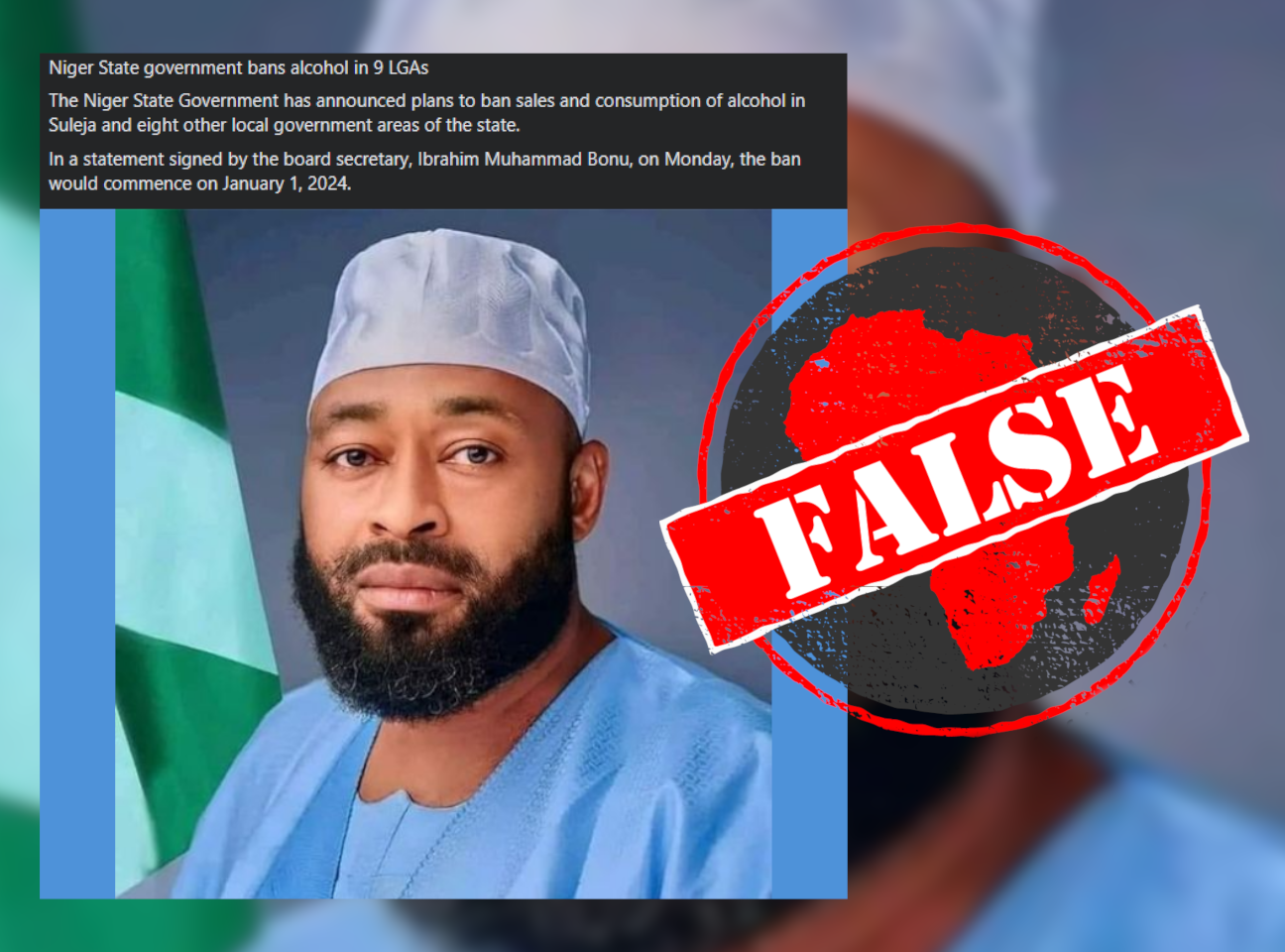IN SHORT: Niger state has not banned the sale and consumption of alcohol. Ignore messages claiming it has.
Has the state government banned the sale and consumption of alcohol in some parts of Niger state? A post shared on Facebook in December 2023 claimed as much.
“Niger State government bans alcohol in 9 LGAs. The Niger State Government has announced plans to ban sales and consumption of alcohol in Suleja and eight other local government areas of the state,” the post reads.
It cited a “statement signed by the board secretary, Ibrahim Muhammad Bonu, on Monday” and claimed that the ban would begin on 1 January 2024.
Niger state is located in the north-central part of Nigeria. LGA refers to Local Government Areas, one of 774 in the country.
Umar Bago, the governor of Niger state, is pictured in the post. He was inaugurated in May 2023.
The claim has also been shared on Facebook here, here, here, here, here, here, here, here, here, here and here.
Islam is the predominant religion in Niger. Alcohol consumption is forbidden in Islam. Some northern Muslim states, such as Kano and Katsina, have banned the sale and consumption of alcohol altogether.
Did Niger state follow suit? We checked.

Not true - Bago
Such claims have the potential to incite religious conflict between Christians and Muslims. They are also damaging to businesses.
Niger’s governor denied the claim. In a statement, Bago called the news “a figment of the imagination of mischief-makers in the state”.
“The state government did not authorise the ban on alcohol. I hereby urge the citizenry, irrespective of their religious and ethnic leanings, to go about their businesses without let or hindrance.”
Republish our content for free
For publishers: what to do if your post is rated false
A fact-checker has rated your Facebook or Instagram post as “false”, “altered”, “partly false” or “missing context”. This could have serious consequences. What do you do?
Click on our guide for the steps you should follow.
Publishers guideAfrica Check teams up with Facebook
Africa Check is a partner in Meta's third-party fact-checking programme to help stop the spread of false information on social media.
The content we rate as “false” will be downgraded on Facebook and Instagram. This means fewer people will see it.
You can also help identify false information on Facebook. This guide explains how.


Add new comment